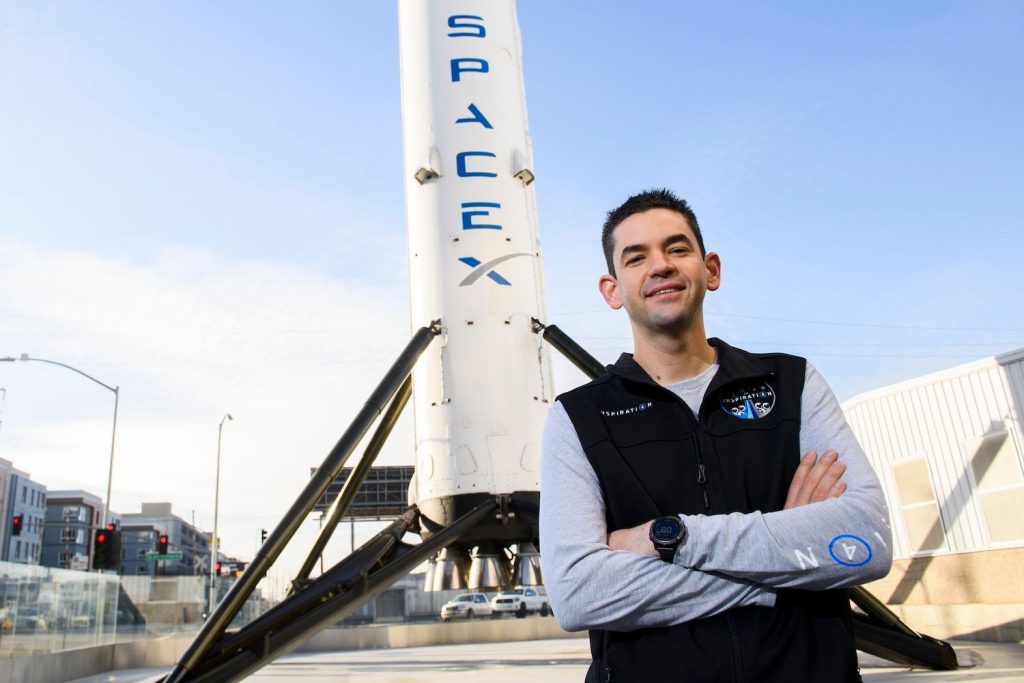
Trump Taps Billionaire Space Tourist Jared Isaacman to Lead NASA (Image Credit: Gizmodo-com)
President-elect Donald Trump has selected Jared Isaacman, entrepreneur, pilot, and all-around space enthusiast, as the next NASA administrator, marking a major shift in the space agency’s leadership.
Trump made the announcement through a post on Truth Social, writing that Isaacman would “drive NASA’s mission of discovery and inspiration, paving the way for groundbreaking achievements in Space science, technology, and exploration.” NASA’s last two appointed administrators have been former politicians, so putting the billionaire astronaut at the helm is rather unconventional for the space agency and a possible indication of the private industry playing a much larger role in the national space program.
Fresh off of his first spacewalk, Isaacman stated that he was honored to receive the nomination. “Having been fortunate to see our amazing planet from space, I am passionate about America leading the most incredible adventure in human history,” Isaacman wrote on X.
Aside from being the founder and chief executive of payment services company Shift4, the billionaire was able to translate his personal passion for space into reality by commanding two private astronaut missions. Isaacman’s first stint in space, Inspiration4, launched in September 2021 with the first all-civilian crew to reach orbit.
Earlier in September, Isaacman led a four-person crew on board a Dragon spacecraft for the Polaris Dawn mission, which reached higher altitudes than any other SpaceX crew capsule. The private spaceflight also saw two crew members hop out of the capsule, performing the first-ever commercial spacewalk and testing SpaceX-designed spacesuits in the vacuum of space. As far as commercial trips to space go, Polaris Dawn set the bar high and took on much more challenging tasks than the regular suborbital flights.
“On my last mission to space, my crew and I traveled farther from Earth than anyone in over half a century,” Isaacman wrote on X. “I can confidently say this second space age has only just begun.”
If we’re to read anything into this, it’s that this “second space” age is likely to see NASA outsourcing heavily to private companies, continuing what it already an ongoing trend. With a second Trump term looming, there has been speculation that the president-elect may seek to cancel NASA’s Space Launch System (SLS) rocket, which is poised to launch astronauts to the Moon as part of the space agency’s Artemis program. NASA’s massive Moon rocket is marred by delays and cost overruns, and may end up costing six times more than its original value.
As a result, the space agency has been struggling with its planned return to the Moon, trying to manage a tight budget while sustaining its ambitious timeline to land humans on Mars. NASA’s 2024 budget was $24.875 billion, about half a billion less than what the space agency received in 2023 and some $2.31 billion short of what it was hoping to spend on its various programs this year. The agency needs more funding for its science endeavors, while the private industry is looking to make money from space.
With Isaacman leading NASA, there might be more focus on profiting from the cosmos. “Space holds unparalleled potential for breakthroughs in manufacturing, biotechnology, mining, and perhaps even pathways to new sources of energy,” Isaacman wrote. “There will inevitably be a thriving space economy—one that will create opportunities for countless people to live and work in space.”
Isaacman’s close association with SpaceX founder and CEO Elon Musk is also worrying (Isaacman’s missions rely on SpaceX’s Falcon 9 rockets and Crew Dragon capsule). Musk is already a close ally to Trump, and with Isaacman at NASA, the SpaceX billionaire may have an unfair advantage to securing more contracts from the space agency, leading to a full-on monopoly of the industry. Of course, the U.S. Senate still needs to approve Trump’s nomination of Isaacman as the space agency’s administrator.
That’s not to say that Isaacman wouldn’t bring a much-needed fresh approach to NASA, with the space agency being weighed down by bureaucracy at times and not taking as many risks as the private industry. For better or worse, Isaaman’s appointment will mark a new era for NASA and spaceflight as a whole.





